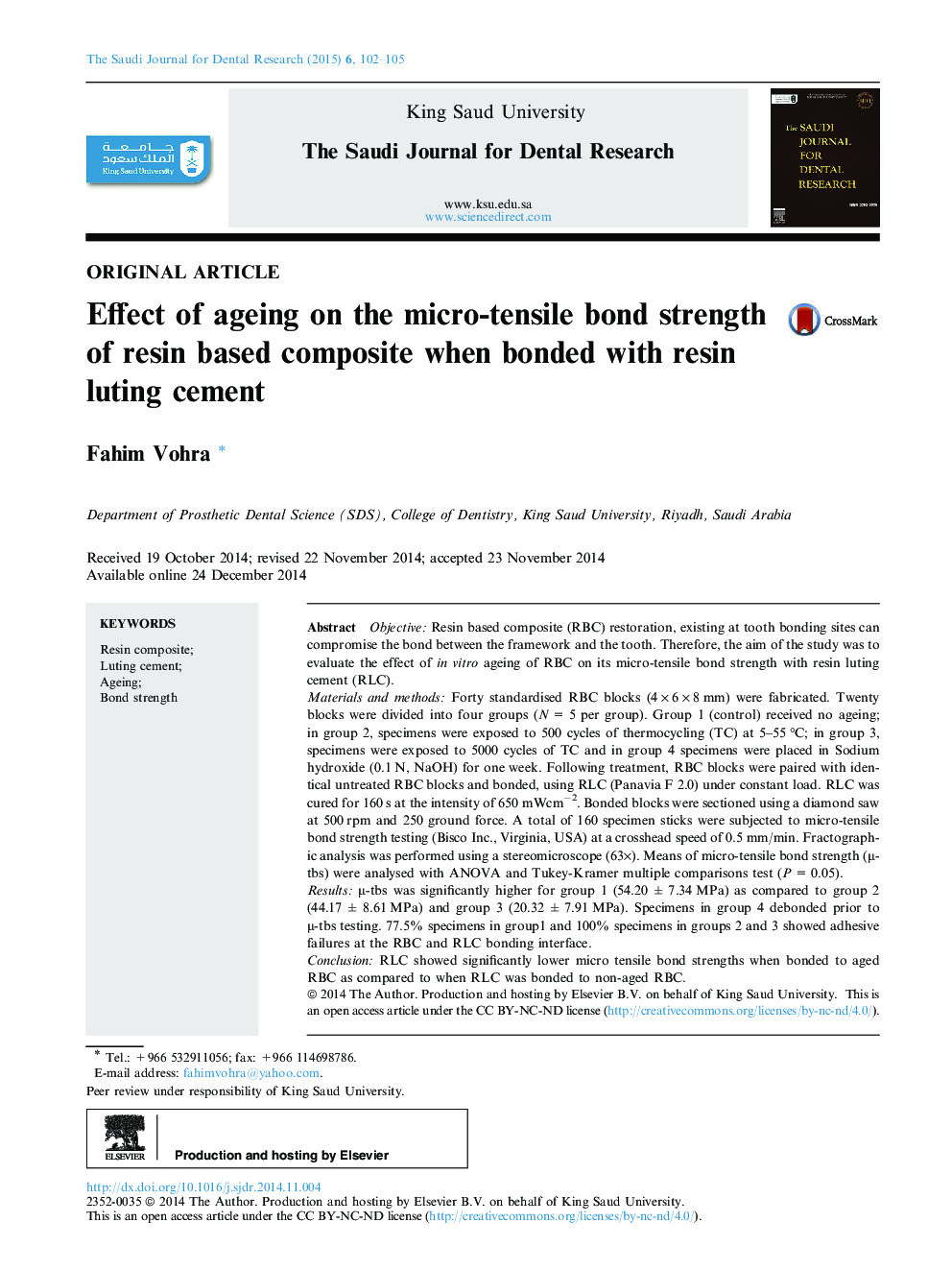| Article ID | Journal | Published Year | Pages | File Type |
|---|---|---|---|---|
| 3175263 | The Saudi Journal for Dental Research | 2015 | 4 Pages |
Objective: Resin based composite (RBC) restoration, existing at tooth bonding sites can compromise the bond between the framework and the tooth. Therefore, the aim of the study was to evaluate the effect of in vitro ageing of RBC on its micro-tensile bond strength with resin luting cement (RLC).Materials and methods: Forty standardised RBC blocks (4 × 6 × 8 mm) were fabricated. Twenty blocks were divided into four groups (N = 5 per group). Group 1 (control) received no ageing; in group 2, specimens were exposed to 500 cycles of thermocycling (TC) at 5–55 °C; in group 3, specimens were exposed to 5000 cycles of TC and in group 4 specimens were placed in Sodium hydroxide (0.1 N, NaOH) for one week. Following treatment, RBC blocks were paired with identical untreated RBC blocks and bonded, using RLC (Panavia F 2.0) under constant load. RLC was cured for 160 s at the intensity of 650 mWcm−2. Bonded blocks were sectioned using a diamond saw at 500 rpm and 250 ground force. A total of 160 specimen sticks were subjected to micro-tensile bond strength testing (Bisco Inc., Virginia, USA) at a crosshead speed of 0.5 mm/min. Fractographic analysis was performed using a stereomicroscope (63×). Means of micro-tensile bond strength (μ-tbs) were analysed with ANOVA and Tukey-Kramer multiple comparisons test (P = 0.05).Results: μ-tbs was significantly higher for group 1 (54.20 ± 7.34 MPa) as compared to group 2 (44.17 ± 8.61 MPa) and group 3 (20.32 ± 7.91 MPa). Specimens in group 4 debonded prior to μ-tbs testing. 77.5% specimens in group1 and 100% specimens in groups 2 and 3 showed adhesive failures at the RBC and RLC bonding interface.Conclusion: RLC showed significantly lower micro tensile bond strengths when bonded to aged RBC as compared to when RLC was bonded to non-aged RBC.
